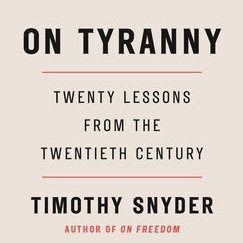I’ve just begun my second week in Baltimore, and already I’ve caught myself with long-term intentions. I’ve hurried through the usual rituals of relocation: I’ve registered my car, and I’ve picked up a driver’s license and library card, an application for a voter registration card, and a collection of guidebooks and maps of the city. But more than that, there’s the way I feel, walking around most nights, slipping into the rhythm of my neighborhood as if I am taking in the details of a stranger who will soon be family, as if it will some day be important for me to know the angles of the fire escapes climbing against red brick buildings or the shape of coiled electrical wires strung along the side of a bridge. It’s an embarrassing feeling—denser and less urgent than infatuation, but shyer and more fragile than love. I’m overeager, ready to attach myself with the guileless certainty of a teenager.
Although I am thirty-four years old, I have only ever lived as a visitor. The visits have mostly been of the long-term kind—long childhood stretches in Ohio and Pennsylvania, most of adulthood in Arizona and Florida—with the occasional, much shorter stints in more exotic locales: a semester abroad in England, less than a year in New York City, ten months in The Emirates. In the shorter visits, it has been easy enough to adopt the role of a tourist whose job is only to see as much as can be seen in a discrete amount of time, but, in the long visits, my relationship toward my locations has been murkier. I lived in these places as a person knowing she would some day move: my father’s job would change, my schooling would end, a better more permanent job would take me away. To live in a place for years expecting to leave it feels, after a time, like cowardice. Sure, I’ve cared about the places where I’ve lived—volunteered in community organizations, tried to understand the issues facing the people who live in these places—but I’ve cared in the way of a lover, already imagining a future with someone else.
I have lived in Baltimore eight days, and the lines between people in this city—the way one street separates the nightlife of art students from a desolate neighborhood where homeless people wander and shout—are already hard to miss. We live on the edge of a historical district of giant nineteenth-century homes converted into apartments. If we walk south or west, we find coffee shops and restaurants, the nation’s oldest cathedral of heavy stone and iron-wrought gates, an opera house, a university, two art colleges, and a quiet, tree-lined neighborhood grand enough to serve as a senator’s D.C. residence in the television show House of Cards. The busy road outside our windows, though, is one we have been told, repeatedly, not to cross. Just east of us, there are rows of boarded up houses and empty lots scattered with trash, and, less than a mile north, after the halal meat shops and barbershops close, the sidewalks are dotted with prostitutes. I don’t know Baltimore well enough to diagnose its ailments or offer anything like a cure, but I can feel myself wanting to earn the right to own the bad along with the good.
The ingredients of love are prosaic. Chance and timing. Logistics. We all know this and can’t admit this. To devote the long haul of your life to one person or place for any reason other than her intrinsic value seems not just foolish but at odds with the experience of love. What could convince us that the feeling of magic is born from something as banal as circumstance? I know, for instance, that I look at Baltimore as the place in which, after two years of long-distance dating, I will live with my girlfriend. I know that I am primed to like a city that is within a day’s drive of my family and my girlfriend’s family, a place that has given us each a good job and an apartment we can afford, but the settling-in feeling, the tug of affection that hits me—walking through the shadows of old, soot-stained mansions, waking up at six o’clock each morning with the rush of traffic outside my windows and the sun streaming, scrubbing the floors of an apartment too old for central air conditioning and dusted each day with the gray-black city-silt blown in from box fans—feels singular and fated, as if I am the only person who has ever looked at a new city and believed it would soon feel like home.
Marian Crotty is a PhD candidate in fiction at Florida State University and a 2012-2013 Fulbright scholar to the United Arab Emirates.


